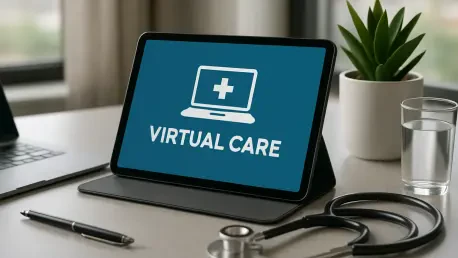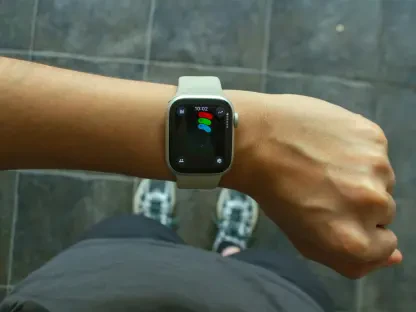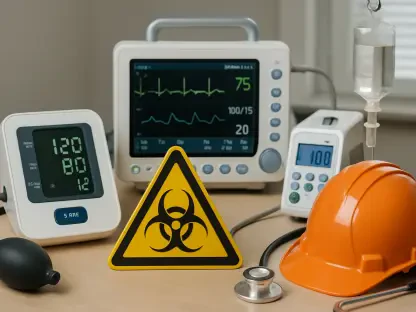In the heart of Sweetwater County, Wyoming, a small city named Green River is spearheading a transformative approach to mental health crisis response that could redefine public safety across rural America. With mental health calls becoming a daily challenge for law enforcement, as poignantly noted by Sheriff John Grossnickle with his statement, “Mental health calls aren’t rare anymore. They’re daily,” the urgency for innovative solutions has never been greater. Green River’s pioneering adoption of the Virtual Crisis Care program offers a beacon of hope by connecting individuals in distress with mental health professionals in real-time through telehealth technology. Supported by significant funding, this initiative addresses the critical gap in resources, especially in Wyoming’s vast rural expanses where help is often hours away. By bridging the divide between law enforcement and specialized care, Green River is not just responding to crises but reshaping how communities support those in need, setting a powerful example for others to follow.
Bridging the Gap with Technology
In rural Wyoming, where isolation can exacerbate mental health crises, the Virtual Crisis Care program equips law enforcement officers with cutting-edge tools to provide immediate support. Officers in Green River carry tablets that facilitate direct telehealth connections to licensed mental health professionals, ensuring that help is accessible within minutes, regardless of the time or location. This rapid response capability is vital in a state where vast distances often mean delayed assistance. Governor Mark Gordon has highlighted the significance of this technology, particularly for officers who frequently respond alone in remote areas. By enabling real-time consultations, the program transforms the way crises are managed, offering a lifeline to individuals in distress and a safer alternative to traditional intervention methods that might escalate tensions. The seamless integration of telehealth into policing demonstrates a forward-thinking approach to public safety, addressing immediate needs with precision and care.
The early success of this initiative in Green River, where the police department became the first in Wyoming to implement it on June 3, underscores its practical impact. Chief Shaun Sturlaugson shared a compelling example of a potentially volatile situation that was resolved peacefully by connecting an individual to a mental health expert over the phone. This incident illustrates the program’s dual advantage: it not only supports those experiencing a crisis but also enhances officer safety by reducing the risk of confrontation. Unlike previous methods where officers had to rely solely on their training, often without specialized backup, Virtual Crisis Care provides a direct line to expertise. This shift empowers law enforcement to handle complex emotional and psychological situations with greater confidence, ensuring better outcomes for all parties involved. Green River’s pioneering role in adopting this technology is paving the way for a new standard in crisis response, proving that innovation can thrive even in the most challenging environments.
Overcoming Rural Barriers
Wyoming’s sprawling rural landscape presents unique obstacles to delivering timely mental health care, with long distances and limited resources frequently hindering access to help. Virtual Crisis Care directly tackles these challenges by offering 24/7 availability through partnerships with telehealth providers like Avel eCare. This ensures that even in the most isolated corners of the state, individuals in crisis can connect with professionals almost instantly. The program’s design acknowledges the reality that mental health emergencies don’t adhere to office hours or geographic convenience, making it a critical tool for communities far from urban centers. By leveraging technology, the initiative bypasses traditional barriers, delivering specialized support where it’s needed most. This adaptability is particularly crucial in a state like Wyoming, where the nearest mental health facility might be hours away, leaving law enforcement as the first and often only responders in critical moments.
Beyond immediate intervention, the program’s focus on accessibility reshapes the broader mental health landscape in rural areas. It mitigates the strain on emergency services by providing an alternative to transporting individuals to distant facilities, a process that can be both costly and traumatic. Instead, Virtual Crisis Care prioritizes keeping people in their communities whenever possible, maintaining their support networks and reducing the burden on local government budgets. This community-centered approach aligns with a growing recognition that localized care yields better long-term outcomes. For Green River and other rural agencies, the initiative offers a sustainable model that addresses systemic gaps, ensuring that geographic isolation no longer equates to a lack of support. As this program gains traction, it highlights the potential for technology to level the playing field, bringing equity to mental health services in areas historically underserved by traditional systems.
Securing the Future with Funding
The ambitious expansion of Virtual Crisis Care across Wyoming is made possible through a substantial $2.4 million grant from the Leona M. and Harry B. Helmsley Charitable Trust, administered by the Wyoming Association of Sheriffs and Chiefs of Police (WASCOP). This funding is set to roll out the program to all law enforcement agencies in the state over the next two and a half years, starting from the current timeline. While participation remains voluntary, early adopters like Green River and the Lusk Police Department are already demonstrating its value, with additional agencies undergoing training to join the initiative. This financial backing ensures that the necessary resources, from technology to training, are available to scale the program effectively. The grant represents a commitment to addressing mental health crises on a statewide level, recognizing the urgent need for innovative solutions in public safety.
Further validating the program’s potential, trustee Walter Panzirer of the Helmsley Charitable Trust points to its proven track record in other states like South Dakota and Nevada. In those regions, an impressive 80% of individuals in crisis were able to remain in their communities rather than being transferred to higher levels of care, significantly cutting costs and response times for law enforcement. These outcomes provide a compelling blueprint for Wyoming, where similar rural challenges exist. By investing in Virtual Crisis Care, the grant not only supports immediate crisis intervention but also fosters a more efficient system that benefits both individuals and agencies. The focus on community-based resolutions reduces the reliance on emergency detentions, which often strain resources and disrupt lives. As the program expands, this funding serves as a catalyst for systemic change, positioning Wyoming as a leader in integrating mental health support into public safety frameworks.
Building Stronger Community Ties
Virtual Crisis Care goes beyond addressing immediate emergencies by fostering meaningful collaboration between law enforcement and local mental health services in Green River and beyond. Kelsie Young, clinical director for High Country Behavioral Health, has lauded the program for streamlining triage processes and improving access to care, which is often a bottleneck in rural settings. This partnership ensures that officers are not left to manage crises alone but can rely on expert guidance to navigate complex situations. Additionally, the initiative strengthens community trust by demonstrating a commitment to compassionate response over punitive measures. By aligning law enforcement with mental health providers, the program creates a unified front dedicated to public well-being, breaking down silos that have historically hindered effective crisis management in many areas.
Equally important is the program’s emphasis on follow-up care coordination, which aims to prevent future crises by connecting individuals with ongoing support through local centers. This proactive approach addresses the root causes of mental health challenges, rather than merely reacting to emergencies as they arise. For communities in Sweetwater County, this means a more robust safety net that supports long-term stability for vulnerable individuals. The collaboration also alleviates pressure on emergency services by reducing repeat calls, allowing officers to focus on other critical duties. Virtual Crisis Care thus serves as a bridge to sustained mental health resources, ensuring that an initial intervention is not the end but the beginning of a comprehensive care journey. As Green River leads by example, this model of partnership offers a blueprint for other regions seeking to integrate mental health support into their public safety strategies, enhancing community resilience.
Driving Change Through Personal Commitment
The momentum behind Virtual Crisis Care in Wyoming is deeply tied to personal and policy-driven motivations, as exemplified by Governor Mark Gordon’s dedication to mental health reform. Inspired by tragic stories of loss in Sweetwater County, Gordon has championed the program as a reflection of the state’s collective resolve to address systemic challenges. His words, “We come together and we work miracles from time to time,” encapsulate the spirit of unity driving this initiative. This personal connection at the policy level underscores the urgency of providing resources for mental health crises, particularly in rural areas where such issues can be amplified by isolation. The governor’s advocacy has helped elevate the program’s visibility, ensuring it receives the attention and support needed to make a lasting impact across Wyoming’s diverse communities.
At the ground level, the commitment of law enforcement leaders further fuels the program’s success, highlighting its relevance to those directly involved in crisis response. Sheriff Grossnickle’s description of Virtual Crisis Care as a “life-saving tool unlike anything we’ve ever had” speaks to the profound difference it makes for officers facing emotionally charged situations daily. This endorsement from those on the front lines validates the program’s design and implementation, showing that it meets real-world needs effectively. For Green River, being at the forefront of this change is a point of pride, reflecting a broader cultural shift toward prioritizing mental health within public safety frameworks. The alignment of personal stories, policy goals, and practical outcomes illustrates how deeply rooted motivations can drive innovation, positioning Wyoming as a model for other states grappling with similar challenges in crisis care delivery.
Reflecting on a Transformative Legacy
Looking back, Green River’s leadership in adopting Virtual Crisis Care marked a turning point in Wyoming’s approach to mental health crisis response. The initiative, bolstered by substantial funding and heartfelt commitment from state and local leaders, redefined how communities supported their most vulnerable members. By integrating telehealth technology, it bridged critical gaps in rural areas, ensuring that help was always within reach. The collaboration between law enforcement and mental health professionals fostered a safer, more compassionate system that prioritized de-escalation and community-based care. As the program expanded across the state, its early successes in Sweetwater County served as a powerful reminder of what was possible when innovation met determination. Moving forward, the focus should remain on refining this model, ensuring adequate training for all agencies, and exploring ways to integrate additional support services. This legacy of change offers a clear path for other regions to follow, emphasizing that technology and partnership can transform even the most daunting challenges into opportunities for progress.









